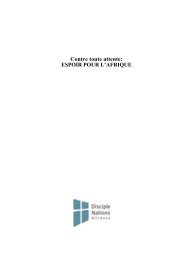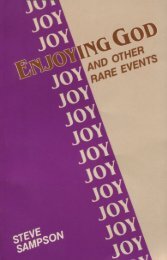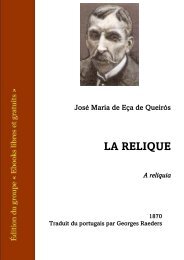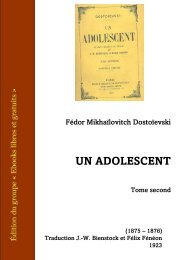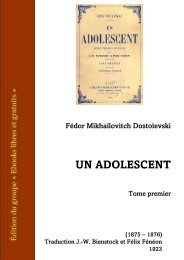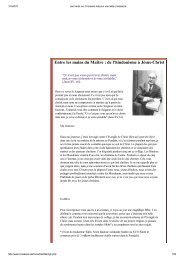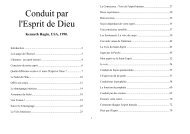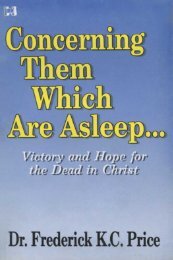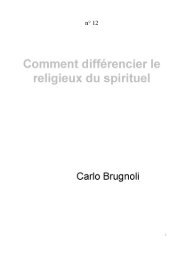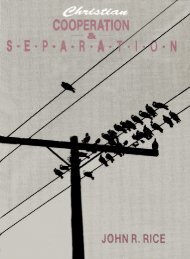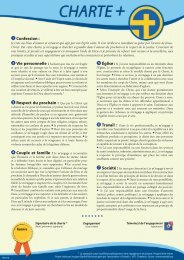341332
You also want an ePaper? Increase the reach of your titles
YUMPU automatically turns print PDFs into web optimized ePapers that Google loves.
24 FATHERS, PASTORS AND KINGS<br />
for absenteeism. 24 Through a system of annual diocesan visitations and synods<br />
the bishop would progressively bring religious order to his territory. To complete<br />
the framework, triennial provincial councils would be attended by all<br />
bishops ‘for the regulation of morals, the correction of abuses, the settlement<br />
of controversies’. 25<br />
It was in its administrative programme for bishops that the Council<br />
proved most penetrating and categorical. This programme was not original to<br />
Trent, but was brought to the Council by the delegates who participated in its<br />
debates and who voiced ideas and proposals on episcopal administration which<br />
had circulated within the church for decades and even centuries. In particular,<br />
calls for diocesan bishops to institute reform through synods were hardly new<br />
in the Catholic church, and several councils had already commissioned their<br />
implementation three hundred years before Trent. 26 That a markedly strong<br />
tradition of administrative episcopalism existed within the French church is<br />
evident from the recommendations of the Colloquy held in Poissy in<br />
September 1561, ostensibly with the purpose of reaching some reconciliation<br />
between the Huguenot and Catholic factions in France. Rather misleadingly<br />
labelled a ‘colloquy’, however, it could never really achieve any hope of accommodation<br />
given that Catholic clergy dominated the meeting and deigned to<br />
hear Huguenot discourses only after considerable pressure from an increasingly<br />
uneasy and vulnerable crown. 27 But although the assembly did not halt the<br />
accelerating slide towards outright civil war in April 1562, the episcopal participants<br />
(three archbishops and forty-two bishops) claimed the opportunity to<br />
produce disciplinary articles which related particularly to the administrative<br />
duties of Catholic prelates, demonstrating their dawning awareness that<br />
internal reform of the Catholic church, and in particular of its episcopate, was<br />
a vital response to the spread of protestantism. In order to offset heresy, therefore,<br />
bishops had to be resident, regularly undertake diocesan visitations and<br />
synods, ensure that only worthy candidates were promoted to holy orders and<br />
live modest lives. 28 These recommendations were then presented by the French<br />
episcopate at the final session of the Council of Trent, as part of the thirty-four<br />
articles which comprised the French programme of reform. Their similarity to<br />
the Council’s final disciplinary decrees is incontestable. 29<br />
In formulating this programme, the French episcopate borrowed from<br />
sources circulating within their own church. Over the course of the fifteenth<br />
and sixteenth centuries, a community of sentiments on an administrative programme<br />
of ecclesiastical reform had evolved within France, and was easily<br />
accessible in print. Piton’s research, supplemented by that of other historians,<br />
identifies a vocal body of individual preachers and theologians who, while not<br />
forming a cohesive reform group, did emphatically and consistently proclaim<br />
the urgent need for renewal within the church and based their hopes for its




